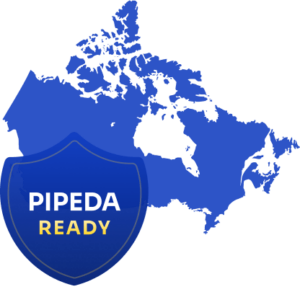Establish trust in your business by ensuring PIPEDA compliance.
Pandectes GDPR Compliance helps Shopify stores meet PIPEDA requirements by scanning for cookies, generating reports, and providing updates for compliance.
















What is PIPEDA?
The Personal Information Protection and Electronic Documents Act (PIPEDA) is a Canadian federal privacy law that regulates how organizations collect, use, and disclose personal information during commercial activities. It applies to any private sector organization handling personal information about identifiable individuals, whether or not the organization is based in Canada.
PIPEDA outlines principles such as:
- Obtaining meaningful consent for the collection, use, and disclosure of personal information.
- Ensuring that the personal information collected is accurate, complete, and up-to-date.
- Protecting personal information through appropriate security measures.
- Providing individuals with access to their personal information.
- Reporting data breaches to affected individuals and the Privacy Commissioner of Canada.
PIPEDA applies across Canada, except in Quebec, British Columbia, and Alberta, which have their own privacy laws considered substantially similar to PIPEDA.

Who does the PIPEDA apply to?
PIPEDA applies to organizations engaged in commercial activities throughout Canada. This includes private sector companies, not-for-profit organizations, and federal entities. Essentially, it covers any organization that collects personal information about identifiable individuals.

What happens if I don't comply with the PIPEDA?
Non-compliance with PIPEDA can lead to:
- Administrative Monetary Penalties (AMPs): Fines of up to $10,000 for each violation.
- Compliance Orders: Orders from the Privacy Commissioner of Canada requiring specific actions to achieve compliance.
- Public Findings: Public disclosures of non-compliance and recommendations for corrective measures.
- Court Action: Referrals to the Federal Court for further action if compliance orders or findings are not followed.
- Reputational Damage: Negative impacts on your organization’s reputation, affecting trust with personal information.
PIPEDA compliance is not just about avoiding penalties; it’s also about safeguarding personal information and respecting individual rights.
When will the PIPEDA go into effect?
PIPEDA became law on January 1, 2001. Full enforcement started on January 1, 2004, following a 3-year transition period.
Complying with the PIPEDA
Navigating PIPEDA, along with other provincial privacy laws (like those in Quebec, British Columbia, and Alberta), can be challenging. Staying informed about evolving regulations and consulting with legal experts are essential steps.
To simplify compliance, consider using a Consent Management Platform (CMP) like Pandectes GDPR Compliance. Our CMP offers customizable consent management, automates data subject access requests, and manages cookies and vendors. Pandectes GDPR Compliance is designed specifically for Shopify stores to help you stay compliant in a dynamic data privacy landscape.


